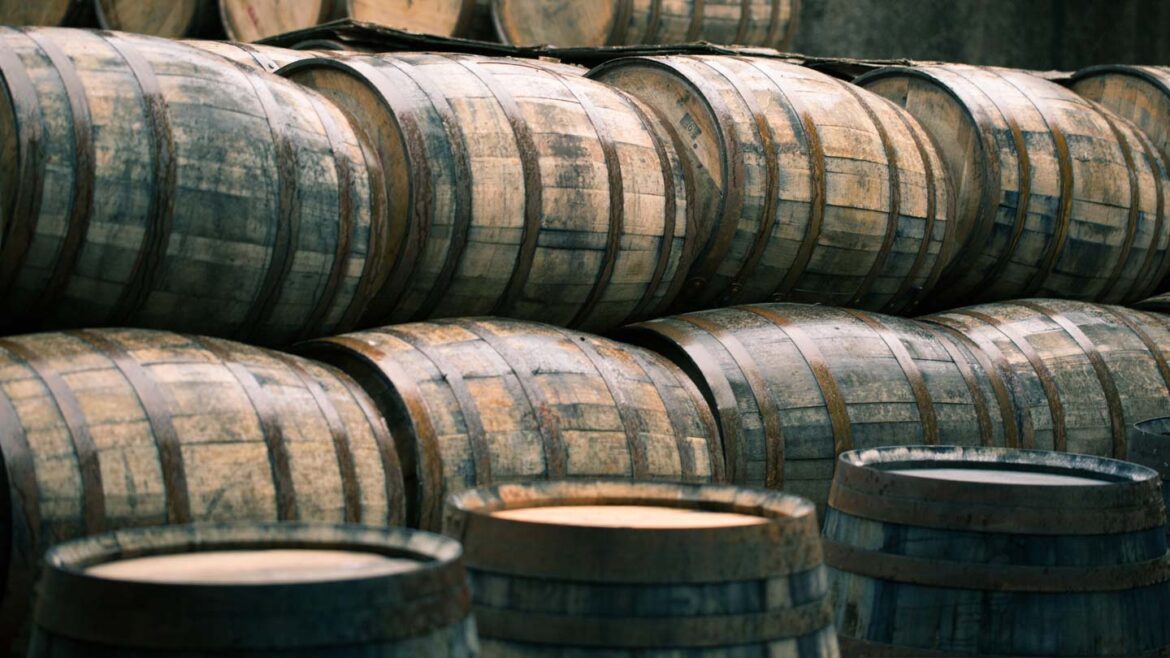
Whisky casks have emerged as a compelling alternative investment in the UK, attracting both novice and seasoned investors looking to diversify their portfolios. However, the tax treatment of whisky investments is often misunderstood. Navigating HMRC regulations, capital gains tax exemptions, VAT, and inheritance implications is essential to maximise returns and stay compliant. This guide provides an in-depth look at the tax considerations every UK whisky investor needs to understand.
Understanding Whisky as an Investment Asset
Investing in whisky typically involves purchasing casks that mature over time, gaining value as the whisky develops character and scarcity. Unlike mainstream financial assets, whisky casks are tangible and stored in bonded warehouses under regulated conditions. A key aspect of whisky’s tax profile is its classification as a “wasting asset.”
According to HMRC, a wasting asset is one with a predictable useful life of 50 years or less. Whisky casks qualify due to natural evaporation commonly referred to as the angel’s share which reduces volume over time. This classification plays a central role in how profits from cask sales are treated for tax purposes.
Capital Gains Tax Treatment
Exemption for Wasting Chattels
Because whisky casks are classified as wasting chattels under UK tax law, they are generally exempt from Capital Gains Tax (CGT) when sold—provided they meet specific conditions such as personal ownership and a lifespan under 50 years. This makes whisky investment in UK especially attractive, as it is one of the few tangible assets that can appreciate in value over time without triggering a CGT liability upon sale. For investors seeking both growth and tax efficiency, cask whisky presents a compelling option.
When CGT May Still Apply
Despite the exemption, there are circumstances where CGT or income tax may still be applied. For example, if an individual buys and sells casks frequently or operates in a manner resembling a trade, HMRC may classify the activity as a trading business. In such cases, profits are taxed as income, not capital gains.
Another scenario involves high-value transactions. If a single lot or group of casks is sold for more than £6,000, and other trading behaviours are evident, CGT may become applicable. Investors must also consider the reduced annual CGT allowance, which is £3,000 for the 2024/25 tax year.
VAT and Excise Duties
Bonded Storage Benefits
Whisky casks stored in bonded warehouses benefit from duty suspension. Investors do not pay VAT or excise duty as long as the casks remain under bond. This structure allows for long-term maturation and appreciation of the asset without upfront tax liabilities.
Tax Obligations on Exit
If the whisky is bottled or removed from the bonded warehouse, it triggers a tax event. At this stage, VAT and excise duty become payable, calculated based on the whisky’s volume and alcohol content. This can significantly impact profitability if not accounted for early. Reputable Scotch whisky brokers often assist investors in planning for these liabilities, ensuring that exit strategies are not only tax-compliant but also financially efficient.
HMRC Regulations and Documentation
Working with WOWGR-Licensed Partners
To maintain tax efficiency and regulatory compliance, investors must ensure their casks are stored in HMRC-approved facilities managed by operators with a valid WOWGR (Warehousekeepers and Owners of Warehoused Goods Regulations) licence. Working with a licensed broker or storage partner is essential to preserve the tax-advantaged status of the investment.
Importance of Accurate Documentation
Investors should retain all relevant documentation, including delivery orders, warehouse receipts, and regauging reports. These records are critical in demonstrating that the asset qualifies as a wasting chattel and has been held under bond. Proper documentation can protect investors from disputes with HMRC and support claims of CGT exemption.
Reporting and Compliance Responsibilities
Investors who sell casks under conditions where CGT applies must report gains via the Self Assessment tax return. Deadlines and reporting obligations should be adhered to strictly, with payments due by January 31 following the tax year in which the gain occurred. In cases where all transactions are exempt, reporting may not be required, but accurate records must still be kept.
Tax Planning Strategies for Whisky Investors
Managing Sale Proceeds to Stay Within Exemptions
Careful planning of sales can help investors remain within CGT exemption thresholds. Selling casks in smaller lots or spreading disposals across multiple tax years can reduce or eliminate CGT exposure.
Avoiding Classification as a Trade
Investors should take care not to engage in behaviours that resemble commercial activity. This includes limiting the frequency of transactions, avoiding aggressive marketing of casks, and holding assets for longer durations. Demonstrating intent to invest—not trade—is essential to maintaining CGT exemption status.
Inheritance Tax Considerations
Whisky casks are considered part of an individual’s estate and are therefore subject to Inheritance Tax (IHT) if the estate exceeds the nil-rate band, currently £325,000. While whisky does not generally qualify for Business Property Relief, strategic estate planning may reduce exposure. Gifting casks during one’s lifetime or placing them into a trust are options that could be explored with a qualified adviser.
Misconceptions and Practical Risks
The Myth of Automatic Tax-Free Status
Not all whisky investments are automatically exempt from taxation. Only casks that meet specific criteria—being wasting chattels, stored in bond, and held passively—qualify for CGT exemption. If any of these conditions are not met, tax may be due.
Broker and Storage Assumptions
Not all brokers or investment schemes offer tax-compliant storage solutions. Investors must independently verify that their casks are stored under HMRC-regulated conditions. Relying solely on broker assurances without documentation may result in avoidable tax exposure.
Liquidity and Market Dynamics
Whisky is not a guaranteed liquid asset. While demand for rare and well-aged casks is strong, the market can experience fluctuations. Younger or less-distinguished casks may take longer to sell. Investors should prepare for variable holding periods and avoid relying on whisky investments for short-term liquidity.
Summary and Conclusion
Whisky casks present an appealing investment opportunity for UK residents seeking tax-efficient asset growth. Their classification as wasting chattels provides a unique advantage under current HMRC guidelines, allowing many investors to avoid capital gains tax when the correct conditions are met. However, this advantage is not automatic and requires thoughtful planning, regulatory compliance, and professional oversight.
For personalised guidance, Vintage Acquisitions offers professional support at every stage—from acquisition and storage to eventual sale. With a team experienced in both whisky markets and regulatory requirements, we help ensure that your whisky investment is both profitable and tax-compliant.
Frequently Asked Questions
Is CGT always exempt when selling whisky casks?
No. CGT exemption only applies if the casks are wasting chattels, stored in bond, and held as a passive investment.
Do I need to pay VAT when I sell my casks?
Not if the casks remain under bond and are sold as-is. VAT and excise duties apply when whisky is bottled or removed from bonded storage.
What documentation do I need to keep?
Delivery orders, warehouse receipts, purchase invoices, and storage records are essential for proving compliance and eligibility for tax exemptions.
Ready to explore whisky as part of your portfolio strategy?
Contact us today and discover how cask whisky investment with Vintage Acquisitions could support your long-term financial goals.

